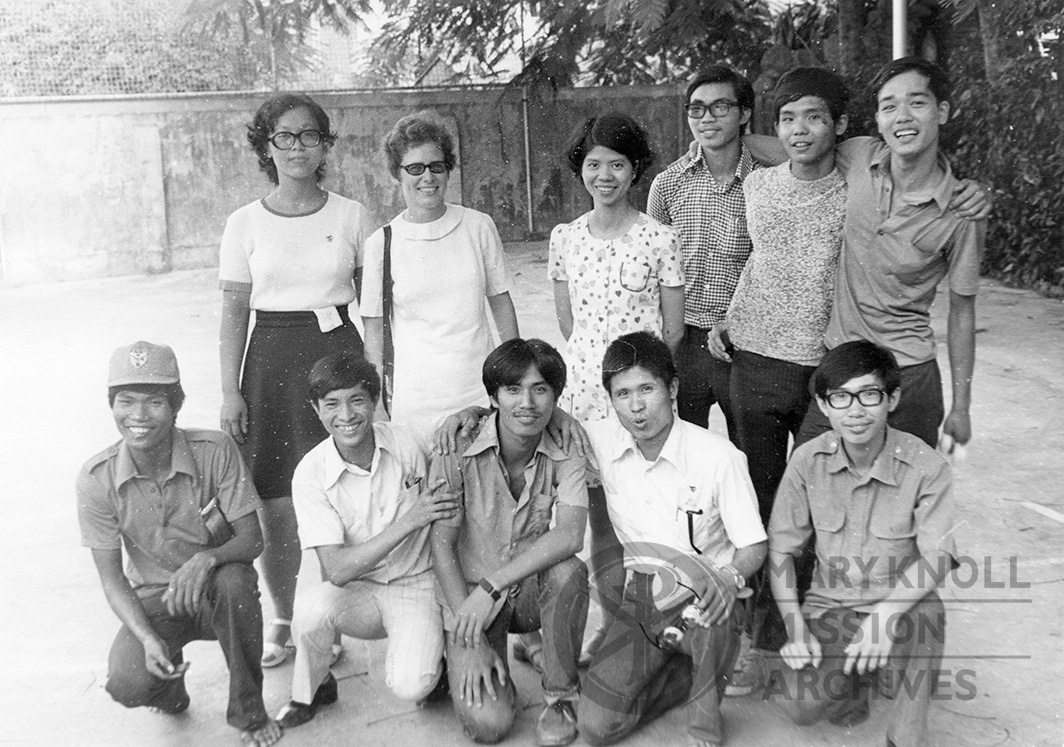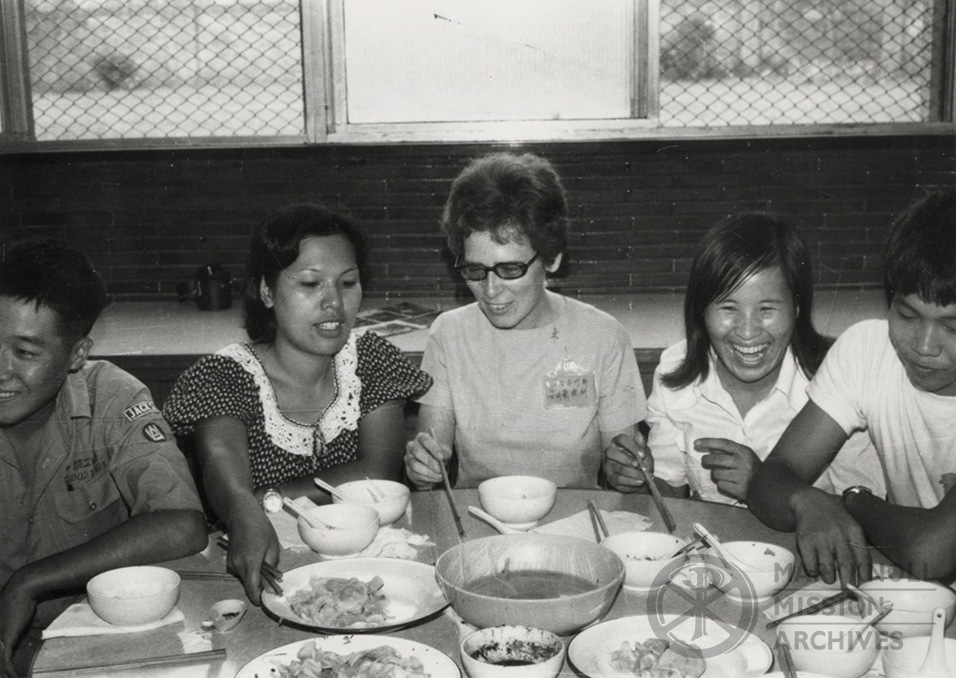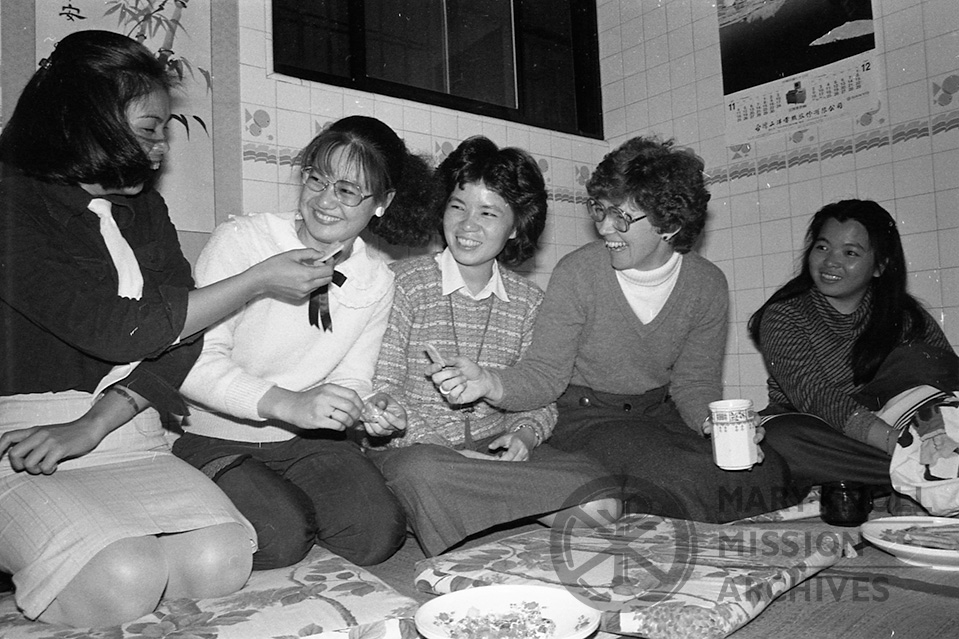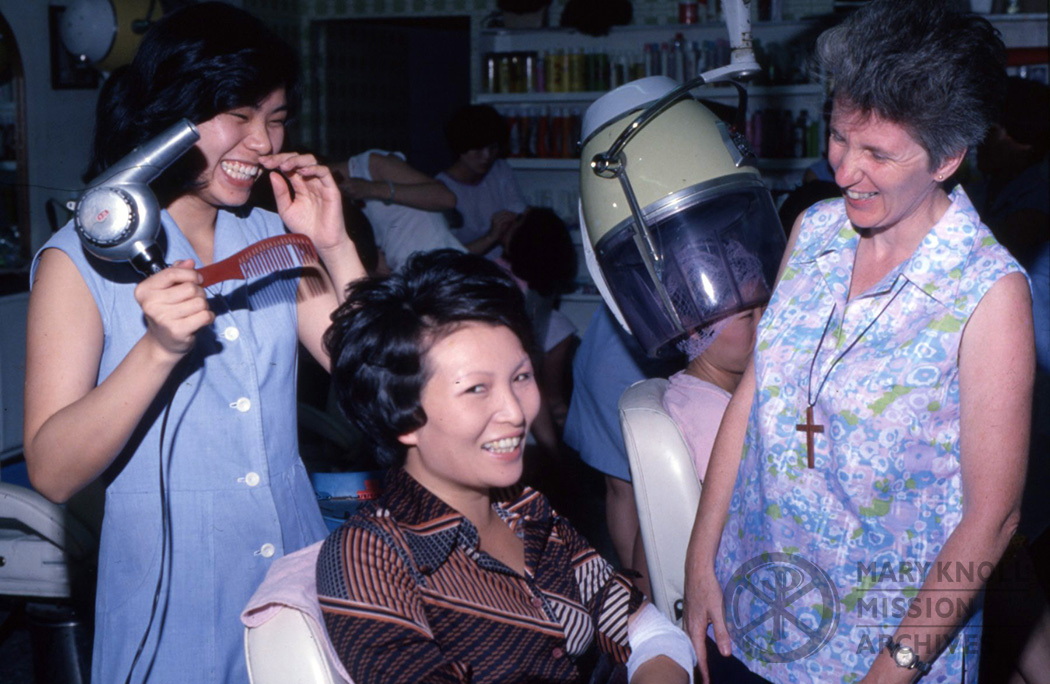This Friday, July 5th, will be National Workaholics Day. Before coming across this unofficial holiday, I had never heard of National Workaholics Day and thought it was an interesting choice for a celebration. As I looked further into what the day was actually about, I found that I definitely support its intention “to remind us to find a good balance between our home and work life.” (National Today) At the fast pace our world is moving, it is easy to get caught up in work with deadlines, goals, and added tasks that need to get done. “If I just spend a little more time working on this” can slowly turn into hours of our lives devoted to work and may potentially become “harmful to [our] physical and mental health.[..] The day encourages workaholics to make lifestyle changes so that they can give other aspects of their lives as much importance as their work.” (Time and Date)
For this particular day, I found a connection to the work that Sr. Theresa Kastner did as a chaplain in the Young Christian Workers (YCW) Movement. After moving into the city from very rural locations away from their families, young workers, in situations where they might have to work 7 days a week, were left feeling lonely and having their lives completely taken up by work. Through this work, the YCW hoped to impart some work life balance for them, provide a sense of dignity, create a family amongst the workers, and empower them to give back to this community that helped them. Below, Sr. Theresa Kastner writes of her experience with the YCW:
“After finishing language study in 1972 I decided to work with factory laborers as a chaplain in the Young Christian Worker (YCW) Movement. At the time there were fewer than ten priests and sisters on the island doing anything with the more than one million young people working in Taiwan’s fledgling industries. I remember a Chinese bishop I deeply respected telling me, ‘We are not yet ready to be involved. Your role as a missionary is to be there doing the things we cannot now do, reminding us, beckoning to us until we are ready.’
In YCW ministry I had the good fortune of working with an extraordinary man, Father Louis Dowd, S.J. Louie already had thirty years of service in China. He was father, brother, adviser, and friend not only to the young workers but also to Maureen, the other Maryknoll sister who eventually joined us, and to me. On my first day I asked him what my hours would be. He replied, ‘Be here when your heart wants to be here, because when it doesn’t these young people will know, and they already have enough to contend with in their lives.’ That advice continues to inform my commitments.
Louie loved the scriptures, so we shared them freely with our worker groups challenging them to relate the good news to their daily lives. They responded with enthusiasm. I think of Wang Gwo Jye, a young tailor severely crippled by polio, who told me his special name for Jesus was Ai-Syi, or ‘love-sacrifice,’ because He sacrificed Himself for others out of love; Jan Chyan Jya, our good Samaritan, who cared for a local gangster hospitalized with two broken knees, bringing the man food and clothing he’d purchased from his own meager wages and carrying him on his back to bathe him ‘so he could be more comfortable’; Jan Bai Mei who believed the laborer to be worth his or her hire and spent two long years convincing her boss to give the workers in her factory one day off a week—they often had none—and she succeeded. I was touched, humbled, and encouraged by these youngsters whose lives in sweatshop industries with long hours, poor pay, and unsafe working conditions were so far removed from mine.
In our groups they first came to understand and accept their own dignity and worth. Then they developed a sense of responsibility for the group. Finally they came to an awareness of their need to touch the larger society. Within the strict limits imposed by martial law they found many ingenious ways to better the working conditions and lives of their companions. My eight years in this ministry were filled with many gifts.”
From Journeys in Ministry: Nine Memoirs form Around the World, “Taiwan: Living the Yin/Yang” by Sr. Theresa Kastner p. 70-71
In researching a bit more about Sr. Theresa’s work with the YCW in Taiwan, I found an article titled, “A family away from home,” in the May 1981 issue of Maryknoll Magazine. Below is an excerpt from the article that touches on Maryknoll’s initial involvement with the Young Christian Workers Movement and expands into the opening of the Young Workers’ Center in Kaohsiung, Taiwan:
“At one of the factory gates, Maryknoll Sister Antoinette, (‘Nonie’) Gutzler waits for a couple of youths to direct them to the Young Workers Center run by the Maryknoll Sisters in Kaohsiung. ‘These young workers face a serious problem of loneliness,’ Sister Nonie says in explaining the purpose of the Center. ‘They are surrounded by people, but who cares about any one of them? Usually nobody, because most of the young workers left rural areas and are strangers here in Kaohsiung, where they have come to seek their fortunes.’
‘We are intent,’ says Sister Nadine Tierney (a co-founder of the Center), ‘on encouraging and developing relationships of care and concern among these young people. They need and want that familial type of relationship they left behind in the countryside when they migrated to the city.’
[…]The Maryknoll Sisters first became involved in this apostolate in 1972 when Sister Theresa Kastner joined the staff of the Catholic Social Service Center in the city of Hsinchu on Taiwan’s west coast. There she became interested and active in the Young Catholic Worker movement (YCW).
‘Each year,’ explains Sister Theresa, ‘thousands of young people leave their rural homes to seek a better life in the city. All too often their happy dreams of money and good times come up against the harsh reality of life as unskilled laborers—long working hours, crowded living conditions and aching loneliness. The YCW movement encourages them to reach out to those with whom they work, to feel responsibility and concern for one another. From their newfound strength, members are urged to offer service within the community.’
Further involvement of Maryknoll Sisters in this apostolate came when Sisters Nadine [Tierney] and Andrée Normandin accepted an invitation from Father Francis Spaeth, O.P., to work with the young people of Kaohsiung. They spent a year getting acquainted, studying and observing the situation there before opening the Young Workers’ Center on October 25, 1977.
‘Our first priority,’ Sister Nadine explains, ‘was to welcome everyone without exception. The idea was to provide those young workers with an opportunity to establish a new family among themselves, so there was less emphasis on running programs than on just being available at all times.’
Programs run by the Center are geared toward social and recreational activities: English classes, guitar classes, flower arrangement, art lessons, folk dances. They answer the nagging question that arises when the 190 members of the Center have a day off: ‘What do I do; where can I go on my day off?’
The YCW seems to have solved the problem for some at least. ‘One young man,’ recalls Sister Nonie, ‘told me how much he likes it here. He said that all are like a family and he comes because he wants to belong to a family.’
Sister Nonie concludes, ‘I think friendship is a value—and the need for young people to listen to others, as well as to talk about what is happening in their own lives, is very great.’ And this is one important service that the Center provides.”
“A family away from home” by Morgan J. Vittengl, MM, Maryknoll Magazine, May 1981, p. 29-31




